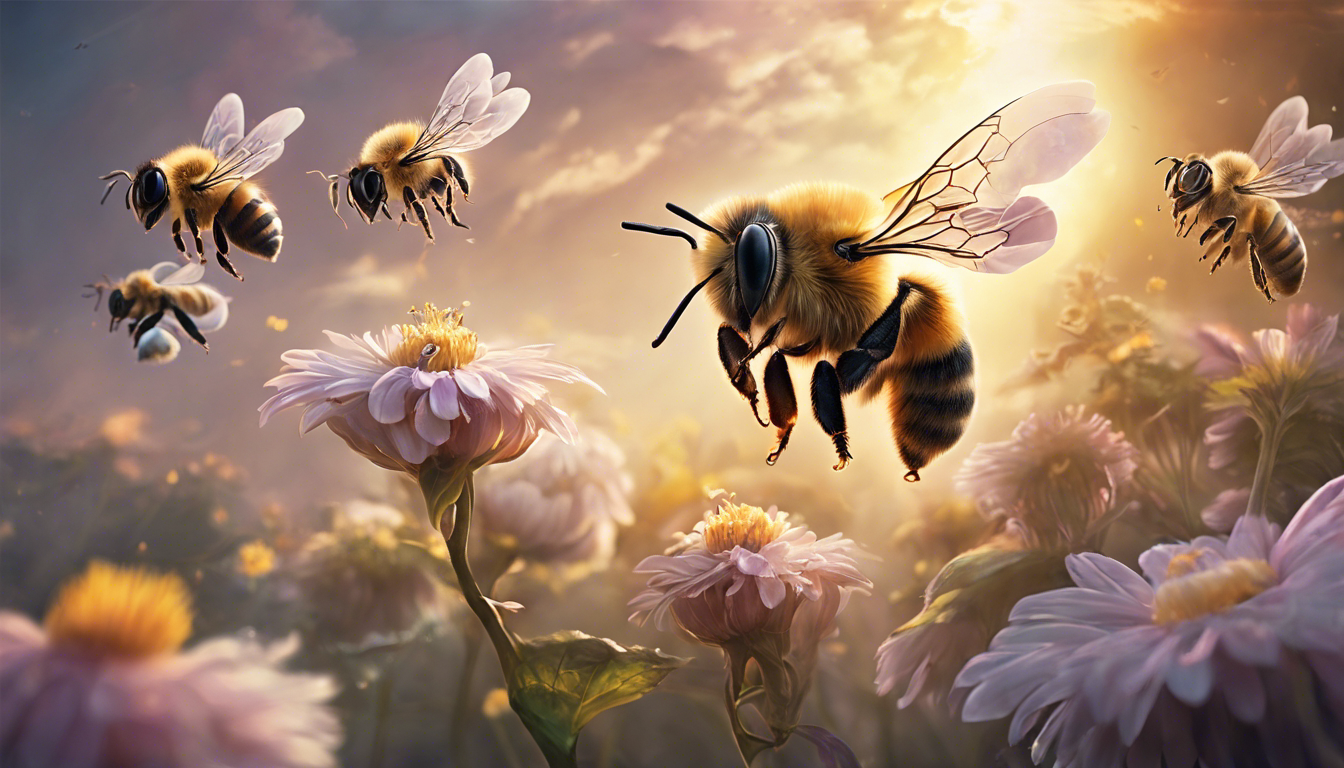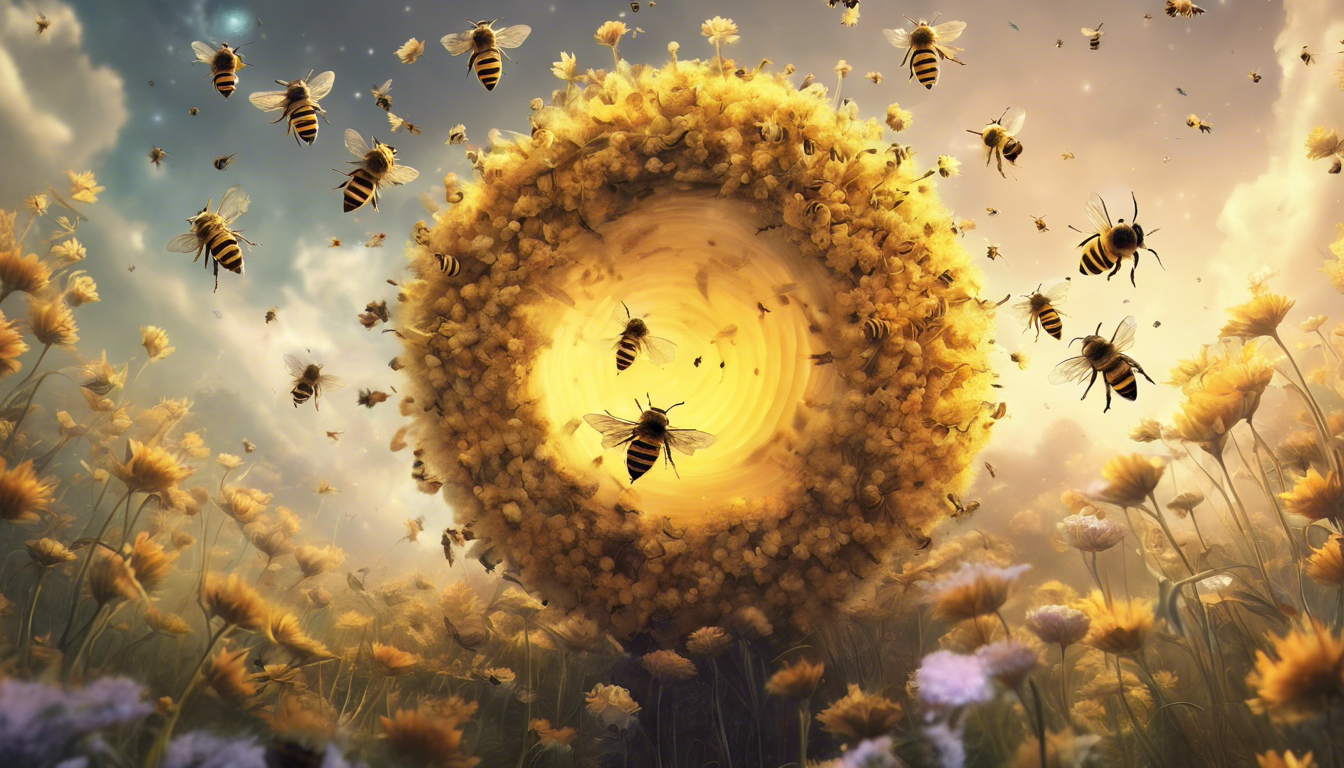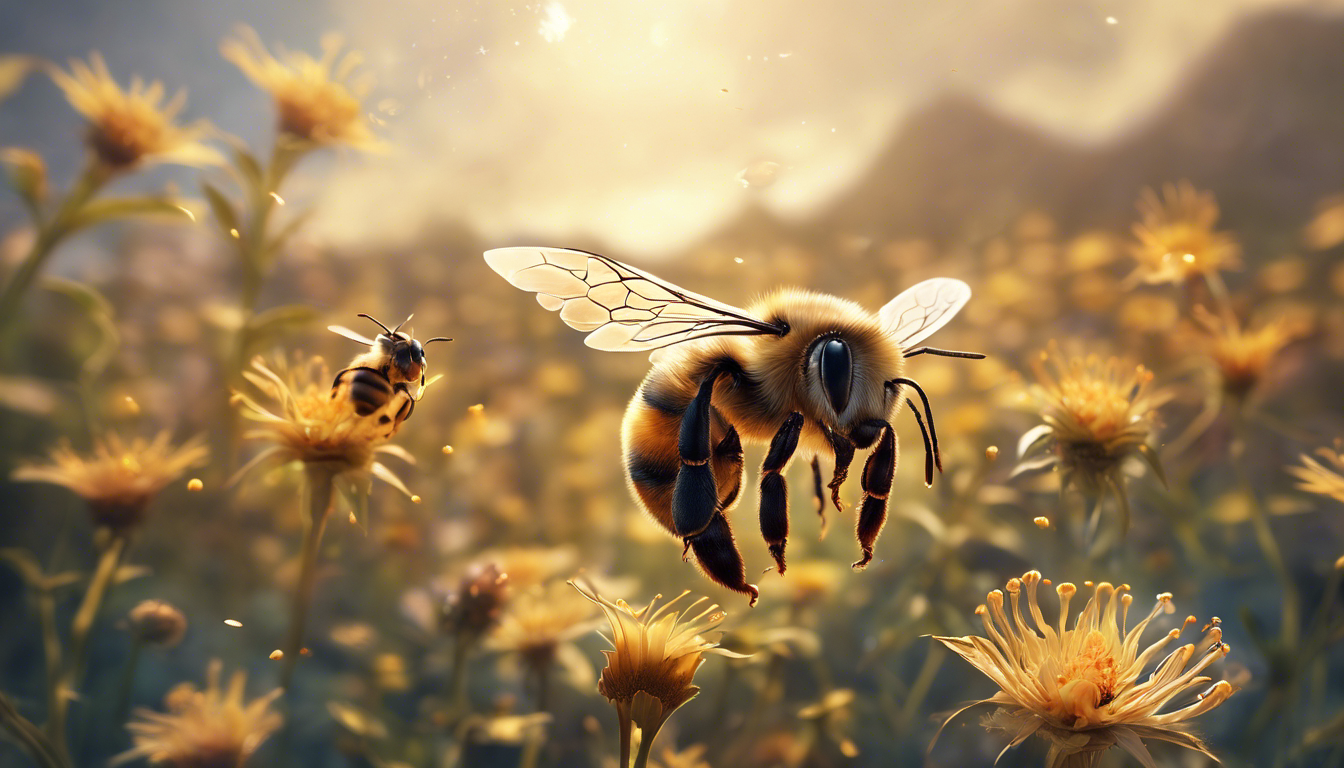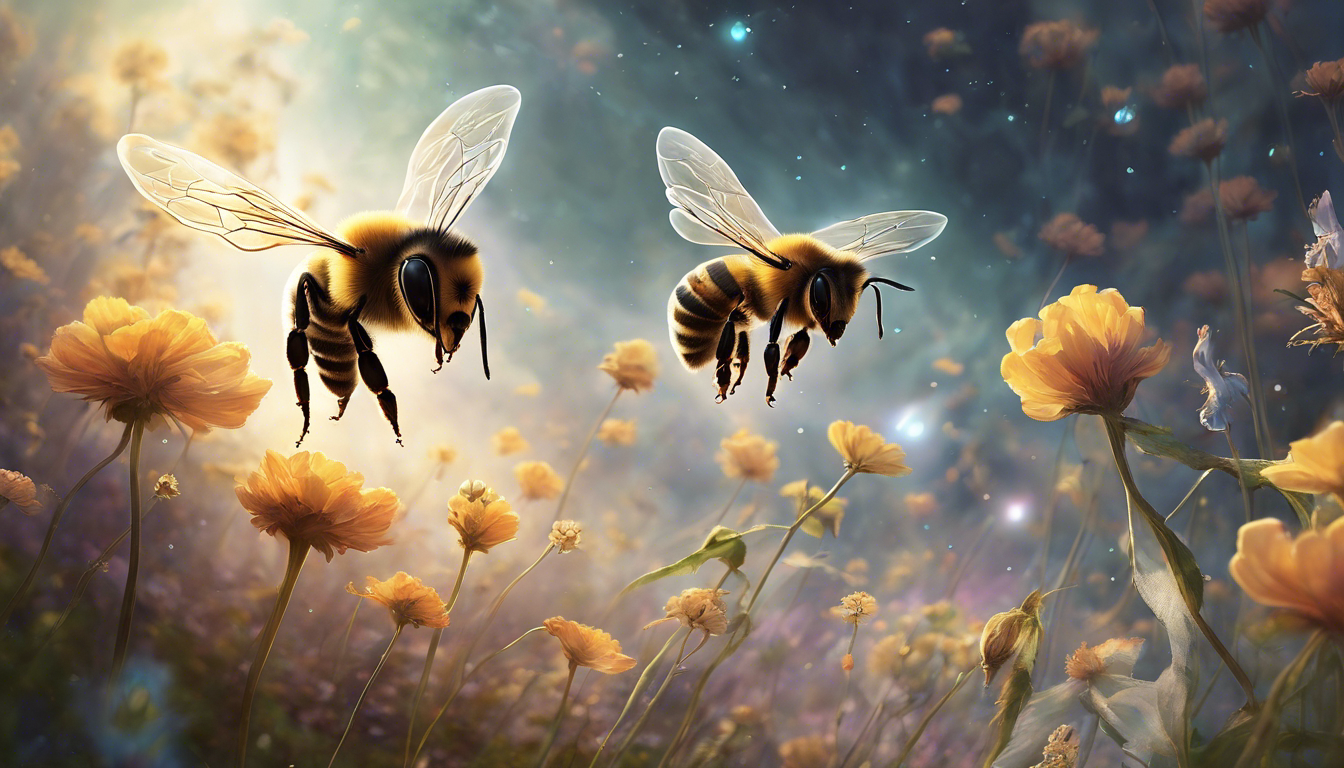The Importance of Bees in Nature
The Vital Role of Bees in Biodiversity
Bees are not just buzzing insects that we see in our gardens; they play a vital role in maintaining biodiversity in nature. As pollinators, bees are responsible for transferring pollen from the male parts of a flower to the female parts, allowing plants to reproduce. This process is crucial for the survival of many plant species. In fact, it is estimated that one-third of the food we consume depends on bee pollination. Without bees, our ecosystems would suffer a significant loss of plant diversity, which would have far-reaching consequences for the entire food chain.
The Impact on Food Production
The agricultural industry heavily relies on bees for efficient and productive crop production. Bees pollinate a wide variety of fruits, vegetables, nuts, and oilseeds that are essential for human consumption. In fact, many crops, such as almonds, avocados, apples, and berries, are entirely dependent on bee pollination for successful reproduction. Without bees, these crops would face reduced yields, lower quality, and even complete crop failures, leading to food shortages and increased prices.
Bee-Derived Products
Bees are not just pollinators; they also produce valuable products that are utilized by humans. Honey is the most well-known bee product, valued for its sweetness and nutritional properties. It is used as a natural sweetener, a home remedy for various ailments, and an ingredient in countless recipes. Beeswax is another important bee-derived product, widely used in cosmetics, candles, and even furniture polish. Propolis, a resinous substance produced by bees, is known for its antibacterial and antifungal properties and is used in various medicinal products.
Environmental Benefits
Bees are important indicators of environmental health. Their population and behavior can provide valuable insights into the state of our ecosystems. The decline of bee populations in recent years has raised concerns about the overall health of our environment. By protecting bees and their habitats, we can also protect other pollinators, birds, and mammals that rely on similar habitats and food sources. Conserving bee populations can help maintain the equilibrium of our ecosystems, ensuring a healthy and balanced natural environment for future generations.
What Can We Do to Help?
There are several ways we can contribute to the well-being of bees and support their crucial role in nature. Here are some practical steps we can take:
- Plant bee-friendly flowers and flowering trees in our gardens and public spaces.
- Avoid using pesticides that are harmful to bees and other pollinators.
- Provide nesting sites for bees, such as bee hotels or undisturbed areas with suitable vegetation.
- Support local beekeepers by purchasing their products, such as honey and beeswax.
- Educate ourselves and raise awareness about the importance of bees in our communities.
By taking these actions, we can make a positive impact on bee populations and contribute to the preservation of our natural ecosystems.
In Conclusion
Bees are much more than just insects; they are vital to the balance and sustainability of nature. Their role as pollinators is crucial for plant reproduction and food production. Bees also provide us with valuable products, while serving as indicators of environmental health. It is our responsibility to protect and preserve these incredible creatures. By valuing and safeguarding bees, we are ensuring a thriving and diverse natural world for future generations to enjoy.
Historical and Cultural Symbolism of Bees

Bees have long been a source of fascination for human societies throughout history. Their extraordinary abilities, complex social structure, and essential role in pollination have made them powerful symbols in various cultures around the world. In this article, we will explore the historical and cultural symbolism of bees, shedding light on their profound meaning in different contexts.
The Bee as a Symbol of Immortality
In ancient civilizations such as the Egyptians, Greeks, and Romans, bees were associated with immortality. This belief stemmed from the observation of bees’ lifecycle, as they were seen to be constantly regenerating and renewing themselves. The Egyptians even used the bee as a hieroglyph to represent the soul, considering it a symbol of the eternal nature of the spirit.
Similarly, the Greeks attributed the bee’s ability to produce honey and wax as a metaphor for the soul’s immortality. They believed that drinking honey could grant eternal life. The Greek god Apollo was often depicted with bees, emphasizing their connection to the divine and eternal.
Bees as Symbols of Industry and Organization
The remarkable industriousness and organization of honeybees have made them potent symbols of hard work and collaboration. In Christianity, bees are seen as models of community and cooperation, as they work together selflessly for the common good of the hive.
Furthermore, bees’ orderly construction of their hexagonal honeycombs has been associated with human architectural achievements. This symbolism can be observed in many religious and spiritual traditions, where beeswax candles are used during rituals and ceremonies, representing the harmony and order sought by devotees.
Bees as Divine Messengers
Throughout mythology and folklore, bees have often been depicted as messengers from the divine realm. In Norse mythology, the god Odin was associated with bees, believing they would bring him information from the mortal world. In ancient Egypt, bees were seen as the tears of Ra, the sun god, carrying messages to the gods.
Similarly, in Hinduism, the deity Bhramari Devi is depicted with a bee-shaped crown and is believed to whisper messages to the gods. This association further enhances the bees’ symbolic role as conduits between the mortal and spiritual dimensions.
The Decorative and Protective Power of Bees
Bees have also been admired for their ability to create beautiful and intricate patterns in nature. The hexagonal shape of honeycombs is often associated with divine geometry and considered a symbol of perfection and balance.
In addition, bees have been seen as protectors, defending their hive with great determination and self-sacrifice. This protective aspect is often associated with the concept of family and the importance of safeguarding loved ones.
The historical and cultural symbolism of bees is rich and diverse, reflecting the profound impact these tiny creatures have had on human consciousness. From representing immortality and industry to serving as messengers and protectors, bees have captured the imagination of humankind for centuries. Their symbolism serves as a reminder of the interconnectedness of all living beings and the eternal quest for harmony and enlightenment.
Bees as a Symbol of Hard Work and Community

Bees have long been revered as symbols of hard work and community. These small and industrious creatures have fascinated humans for centuries, and their qualities have often been associated with admirable traits of perseverance, cooperation, and commitment. In this article, we will explore the symbolism of bees as a representation of hard work and community.
The Hive Mind
One of the most remarkable characteristics of bees is their ability to work together in perfect harmony. Bees live in highly organized colonies known as hives, each member playing a specific role and contributing to the overall well-being of the community. The division of labor and cooperation within a hive is an inspiring example of how a collective effort can lead to great accomplishments.
Each bee in a colony has a dedicated role, such as queen, worker, or drone. The queen bee is responsible for laying eggs, while worker bees take care of tasks like building and maintaining the hive, foraging for food, and nurturing the young. Drones, on the other hand, focus on mating with the queen. This division of labor ensures that every bee has a specific job and contributes to the functioning of the hive.
Hard Work and Diligence
Bees are known for their unwavering commitment to their tasks. They work tirelessly, often visiting thousands of flowers in search of nectar and pollen. This relentless pursuit of resources is not only necessary for the survival of the hive but also a reflection of the bees’ dedication to their community.
Bees’ dedication is particularly evident in their construction of intricate hexagonal cells in their hive. These cells are constructed with precision and efficiency, optimized to store honey, pollen, and raise their offspring. The making of these cells requires meticulous craftsmanship and attention to detail, showcasing the hard work and diligence that bees embody.
Unity and Cooperation
Bees are the epitome of teamwork and cooperation. They communicate using intricate waggle dances and pheromones, allowing them to coordinate their actions and work together effectively. This unspoken language and collective decision-making enable bees to optimize their foraging efforts, navigate long distances, and find the best sources of food.
Furthermore, bees have a remarkable ability to swarm and create new colonies when their original hive becomes overcrowded or in need of expansion. This process involves a collective decision to leave the current hive and create a new one elsewhere. The unity and cooperation required to execute this task demonstrate the incredible sense of community and shared purpose among bees.
The Role of Bees in Society
The symbolic significance of bees extends beyond their attributes as hardworking and cohesive creatures. Bees play a crucial role in pollination, which is vital for the survival of many plant species. Without bees, the world would suffer from a significant decline in food crops and biodiversity.
From an ecological standpoint, bees serve as vital indicators of the health of our environment. Their sensitivity to pollution and changes in habitat makes them powerful messengers of our planet’s well-being. The decline in bee populations in recent years has sparked concerns about the impact on our ecosystems, further emphasizing the importance of protecting these remarkable creatures.
In Conclusion
Bees symbolize hard work, unity, and community. Their exemplary work ethic, cooperative nature, and critical role in our ecosystems make them a powerful symbol of the values we admire. By learning from the bees, we can embrace the principles of hard work, dedication, and collective effort to create thriving communities.
The Ecological Significance of Bees

Importance of Bees in Pollination
Bees play a crucial role in the process of pollination, which is vital for the reproduction of flowering plants.
When bees visit flowers to collect nectar and pollen, they inadvertently transfer pollen grains from the male
part of the flower (stamen) to the female part (pistil), resulting in fertilization and the production of seeds
and fruits. This pollination process ensures genetic diversity, promotes plant growth, and enables the
production of fruits and vegetables that we rely on for our food supply.
The Honey Bee As Key Pollinator
Among the different bee species, the honey bee (Apis mellifera) is particularly important as a pollinator. Honey
bees have developed sophisticated communication systems and their large workforce allows them to pollinate a
wide range of plant species. They actively seek out flowers, and their fuzzy bodies attract pollen which gets
transferred between flowers as they move from one to another. As a result, honey bees are responsible for
pollinating numerous crops, including fruits such as apples, cherries, and strawberries, as well as nuts and
oilseeds like almonds and canola.
The Role of Wild Bees
While honey bees receive much of the attention, wild bee species also play a critical role in pollination.
There are thousands of bee species worldwide, with each having its own unique preferences for flowers and
nesting habitats. These wild bees contribute to the pollination of native plants, including those found in
forests, meadows, and wetlands. By ensuring the reproduction of these plants, wild bees support biodiversity and
contribute to the stability of ecosystems.
Ecological Services Provided by Bees
Beyond pollination, bees provide a range of ecological services that are invaluable for our environment. Bees
help improve soil quality through their pollination activities, as they increase seed production and promote
plant growth. They also support the diets of other wildlife, such as birds and mammals, by providing a
sustainable food source through honey, pollen, and larvae. Bees are also indicators of ecosystem health. Their
population decline can be a sign of environmental disturbances, including habitat loss, pesticide use, and
climate change.
Bees are not just creatures that buzz around flowers, but rather vital players in maintaining the ecological
balance of our planet. Their role in pollination ensures the production of crops and the survival of countless
plant species. The preservation of bee populations, both wild and managed, is of utmost importance for our food
security, biodiversity, and overall ecosystem health. By understanding and appreciating the ecological
significance of bees, we can actively support their conservation and take steps to ensure their well-being.


Article written by Dera
Greetings, I am Dera, a 35-year-old individual with a deep passion for spirituality. Through my website, I aim to share my insights and knowledge to help others on their spiritual journey. Join me on the path to inner peace and enlightenment.